(If you haven’t read Part 1, I recommend you start there!)
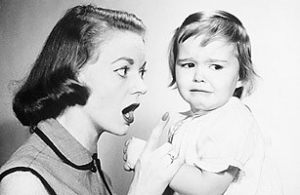 Loss #2. I’ve lost control of my emotions.
Loss #2. I’ve lost control of my emotions.
This is quite intertwined with the loss of control of a child’s behaviour, but can also exist on its own. We all know that we get much more frustrated when we’re tired or stressed, when the kids are listening, or we’ve just generally had a bad day. All these things contribute to a lessened ability to cope with the normal stressors of everyday life, especially with a child. And we snap. I think many of us can identify the difference when we yell because we’re trying to gain control over a child’s behaviour and when we yell because we’ve lost control of our own emotional state.
The problem with yelling as it pertains to a loss of control of emotions is that it is now yelling out of anger or frustration which has been linked with increased risk for child abuse
There are so many variables at play, however, that it’s almost impossible to broadly suggest what people can do. However, there are a few things that may help:
- If you feel yourself getting angry and about to yell out of anger, take a time out. Often just moments alone can help us regain perspective on the situation. Whether you take some deep breaths or just try to take a different perspective on the situation, the time away can be a life saver. Even if your child is screaming or doing something that has driven you bonkers, stay away until you can handle the situation. If you need to call someone else in, do it.
- Do 25/50/100 (however much is necessary) jumping jacks or push-ups or any form of physical activity that you can do in quick bursts. Part of anger is a physiological build up (and sustaining) of cortisol in the system gearing us towards confrontation[6]. We need an outlet for this and physical activity is one of the biologically expected ways for our body to process this physiological reaction. If you think of anger as being necessary to fight properly, it explains why there’s a heightened risk of abuse for children, but also why physical outlets are ideal for dissipating that anger.
- Sing and sing loud. If you need to get that voice out there, singing can not only get your kids’ attention, but may also calm you down and get you back on track for whatever it was that led to the loss of emotional control in the first place. You may also end up happier and laughing at the end too.
I should be clear here that anger is not always a loss of control. It can be incredibly useful when faced with a danger, but our kids aren’t dangerous to us. This is why I refer to this type of response as a loss of control that has led to anger.
[An interesting aside, when I covered spanking, one of the features that shocked many was that conservative Protestants did not show the same negative effects to spanking that all other groups seemed to have found. One possibility is that the spanking is not done out of anger, ever, something that is supported by the fact that this same group scores much lower on rates of yelling compared to all other groups[7]. Though I have no idea what to make of this, it certainly does seem to imply that our emotional reactions can dictate a lot.]Loss #3. I’ve lost control of the outcome.
This is kind of a special case scenario that I’m thinking of, but something I have been totally guilty of and seen many parents do the same. Imagine you’ve told your child not to put quarters in their mouth and one day you suddenly notice your child choking. You panic and you hit their back and out pops a quarter. You check that your child truly is okay and then what do you do? You yell. You yell that they know not to do this and that they could have hurt or killed themselves.
In short, you yell because you almost had the worst outcome possible happen. And you didn’t have control over it.
This type of yelling is distinct from yelling in anger, even though you may initially feel that surge of stress and cortisol, because it’s yelling from fear. The difference? The stress response associated with fear has the initial heightened cortisol response, but this gives way quite quickly instead of sustaining as in fear[6]. You aren’t at the high risk of losing emotional control here because physiologically your body starts to calm after (though notably some people may get worked up and end up in a state of anger after, but this most likely has to do with cognitions after the fact).
The question of what do we do first begs the question, do we need to change this? I would still argue that yes we do. Why? Because of the effect on our kids. If you re-read the above scenario from the child’s point of view, do you not think the child is scared out of his wits already? If left alone, in the moments after this event, the child should (on his/her own) incorporate the knowledge of the outcome with the act, thus providing some pretty good experiences to draw upon. But to have these types of consolidations occur, an optimal amount of anxiety is needed[8], most likely the exact amount a child has at that moment when they realize they’re okay. If we overload them with anxiety (a likely outcome if we start to yell at them after such a traumatic event), we run the risk of failed internalization.
What can you do? One of the most effective strategies here may be to simply count to ten and hug your child during this time. The natural reduction in cortisol during a fear response coupled with the close contact with your child (which should help increase empathic and sensitive responding) may be enough to calm the yelling and allow you to discuss what happened with your child. But if after this you still feel too emotionally aroused, you can try the aforementioned techniques for loss of emotional control until you’ve calmed down. Know, however, that your child has most likely learned a lesson and taking the time to calm yourself won’t close the window to him/her internalizing a message.
***
Yelling seems to go hand in hand with parenting these days and yet clearly it doesn’t need to. To be clear, I’m not talking about the one or two word yell to get attention when things are too loud – that’s not “yelling” in my books. I firmly believe one of the biggest reasons we find ourselves yelling so frequently is that many of us don’t have that tone of voice that tells our children we need them to focus on us for a moment. That firm, but loving, voice that they know to listen to, even if they don’t agree (because discussion is clearly important too). You may not have a child that does what you say when you say it, but you’ll have a dialogue and that’s hugely important. At that stage you talk to your child about what you want and why – just as you hopefully would do that when they are attempting to get your attention and have you listen to them.
Frankly I think one of the reasons many of us don’t have it is that we’re so uncertain in our parenting to begin with. The idea of having a voice that’s filled with love and certainty in what we’re telling our children is almost impossible if you are constantly second guessing what you do as a parent. We have to work on our confidence as parents if we are going to be successful at not yelling. But we also have to take that idea of “pick your battles” to heart here too. Like anything, if we overuse our firm voice or yelling, it becomes utterly ineffective which leads to greater frustration on our part. The other reason is that we struggle with our own histories and snap when we don’t mean to. We can’t parent our children if we’re stuck in our own childhood as well. For this problem, I strongly recommend reading Parenting From the Inside Out by Dan Siegel.
If you’re committed to stop yelling, there’s a great resources for you called The Orange Rhino. Perhaps I’ll see you over there!

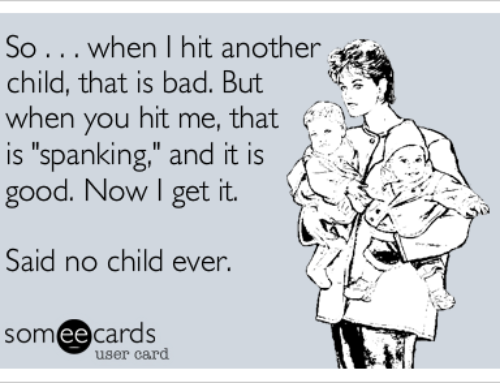
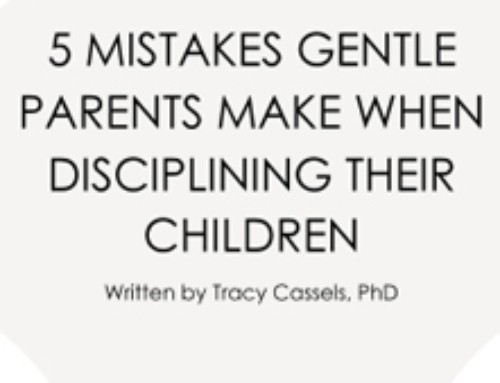
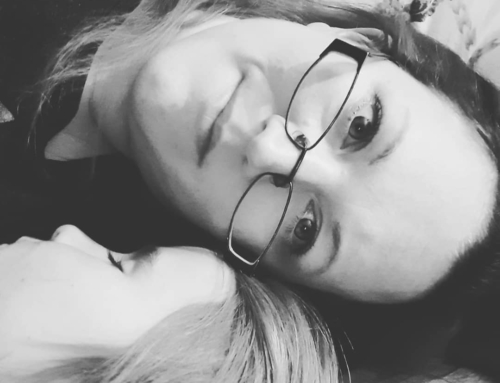
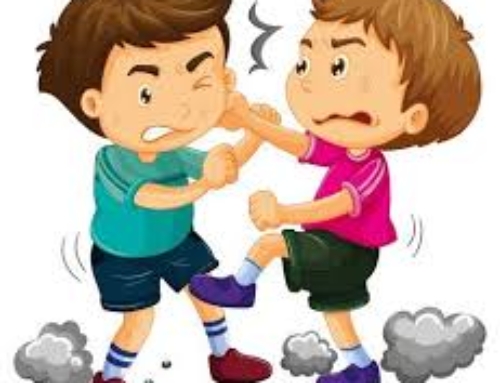
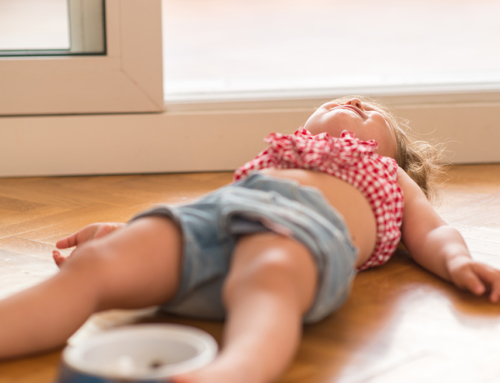
This is definitely my biggest problem in my parenting. I’ve been a gentle parent in all ways, except for yelling, and it is when I lose control of myself or need to make myself ‘heard’ above three little, loud boys. I hate it and I can see that it comes from my dad, he yelled and lost his temper a lot, but was also so loving and generous and a good dad. Parenting is amazing, makes you realise so much about your own childhood. I need to work on this more and find that if i want to yell I whisper instead, that helps sometimes to diffuse a situation. I like what LR Knost says – that we should speak quietly instead of yell so that our kids can hear our words not just our voice. I try and remind myself of that throughout the day.
” You may not have a child that does what you say when you say it, but you’ll have a dialogue and that’s hugely important.”
That’s only if your child can talk… :/ My two-year-old doesn’t yet, so not much dialogue possible. If yelling is the only thing that will keep him from getting poop all over the carpet (for now), *sigh*, so be it.